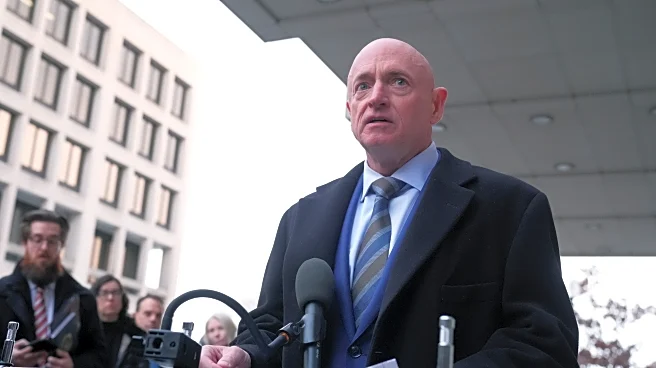What's Happening?
The Pentagon has implemented new media restrictions, requiring journalists to sign a pledge to refrain from reporting unclassified information without authorization. This policy, outlined in a 17-page memo, aims to control the release of information from the military headquarters. Journalists who violate the policy risk losing their credentials. The restrictions have been criticized by press freedom advocates as an assault on independent journalism and a move towards government censorship. The policy is part of broader efforts by the Trump administration to reshape the media landscape.
Why It's Important?
The new restrictions raise concerns about press freedom and transparency in government operations. By controlling the flow of information, the Pentagon may limit public access to independent reporting on military activities. This policy could impact the relationship between the media and government, potentially leading to increased scrutiny and legal challenges. The move reflects ongoing tensions between the Trump administration and the press, highlighting the challenges faced by journalists in covering government affairs.
Beyond the Headlines
The restrictions may have long-term implications for democratic norms and the role of the press in holding government accountable. The policy could set a precedent for other government agencies to impose similar controls, affecting the broader landscape of media freedom in the U.S. The ethical and legal dimensions of the policy will likely be debated by civil society groups and legal experts.











